Hello, and Welcome to My Evil Dead Fanpage Here on GeoCities
My love letter to the pre-millenium internet
I'm being utterly sincere when I say that Substack is one of the only safe, untainted corners left on the internet. It's a rare, razor-thin sliver of positivity and hopefulness in an otherwise bleak, darkening horizon. I imagine today's internet as some ever-burning, disaster-ridden, digital Gotham City; a lawless, hate-filled digital sponge full of extremists, ugly conflict, and greedy corporate opportunists with dollar signs in their eyes and rising, Joker-esque grins revealing hungry, bloody fangs.
The internet has gone from a beacon of hope and connectedness that once enticed us with promises of bringing the world together, to a dumping ground for humanity's worst fears and instincts. It now seems to exist merely as an interface for stoking division and stalking your every move in a desperate effort to prey on, and mercilessly exploit all of the most exposed vulnerabilities of your psychology in a shameless, unmasked ploy to squeeze every last buck it can out of your bank account. It didn't take long to transform all that giddy potential of the AOL days into a digital minefield that could, quite possibly, spell our doom.
Yikes. That's a pretty bleak picture, yo, and I'm sorry for all of the heavy-duty language and imagery here, but lately I've been thinking of those early days of the internet, back around the turn of the millennium—pre-Covid, pre-9/11, when we were a lot more innocent, mostly friendly, and a whole lot less racist. Back when our wildest fears sprung from an unfounded lack of faith in our digital architecture, and that looming specter of Y2K that would send electrical grids into total collapse, the stock market into utter freefall, and cause forests to burn and acid to rain from the sky, all because Microsoft may have kinda not figured out how to make that seemingly simple transition from 11:59 pm 12-31-1999 to 12:00 am 01-01-2000.
Back then there was no Facebook, Instagram, or Twitter. There was only The World Wide Web, The Information Superhighway, The 'Net. Those words no doubt conjure up whispy memories of grinding hard drives sealed away behind yellowing, off-white, Compaq tower plastic, the obnoxious squealing white noise twang of dial-up modems, and those stupid-heavy CRT monitors causing our desks to warp and buckle under the weight.
I remember those AOL CDs that would show up in my mailbox long before I had any actual firsthand experience with the internet. My deviant buddies and I would stockpile a thick stack of those bad boys up and then fling them across the street at the evil neighbor's house like mini-frisbees at night, daring that sour bastard to again send us scrambling down the street as he ambled out in a fury, clutching his shotgun, and demanding Jesus Christ himself descend from the heavens and strike us dead then and there.
It wasn't until my Freshman year in high school, when I signed up for a "digital computing" class, that I had my first taste of an actual desktop computer and the internet. A few weeks into that first semester, some Matthew Broderick, War Games-ass child prodigy classmate of mine found a way to sneak a WAD file of the shareware version of DOOM onto the high school computer lab LAN, and instead of plugging along on whatever C++ Basic programming shit we were assigned at the time, we were instead IDDQD'ing ourselves into omnipotence and chainsawing ourselves through the gates of hell. It was glorious and I suddenly found myself a whole lot more interested in all this goofy computer shit.
It was the second half of the year when California rolled out an initiative to bring this mysterious, invisible sorcery known as The Internet into schools statewide that our computer lab got plugged in and we finally set the plasma rifles aside to explore this fresh, uncharted, and seemingly endless terrain.
Loading up Netscape Navigator, I quickly realized that I didn't know exactly how to internet. None of us did. Google didn't exist back then. What the fuck was a Google? We mostly just poked around in the dark. Our first experiments were plugging whatever infantile shit we could think of in front of .com to see where it would take us. There was "fart.com" "ass.com" etc. (please follow those at your own risk, I have no idea where they'll take you these days, and endorse none of them). Later on, we discovered Webcrawler, one of, if not the first real search engine on the World Wide Web (which holy shit, somehow still exists), and from there the lid of the internet was blown wide open for us. It didn't take long for some of the more morally askew students to track down some pretty heinous stuff online. I remember the Kurt Cobain suicide photos in particular were especially disturbing, and I refused to look at them. You have to remember these were the primordial days of the internet and there were no such things as internet filters, trackers, or any real way to monitor student activity. We were basically in permanent stealth mode. It was the wild west out there.
As time passed, we began to find our footing, and before I knew it, my dad dropped 1,500 bones on a Compaq Presario, and boom, our household suddenly had our very own computer, complete with a blazing, greased-lightning 33.6k dial-up modem.
If you weren't around for it, it's not easy to grasp how different of a world it was like being online back in the mid-90s. None of the rules of the modern internet needed apply in those days. This is back when it was actually exciting to see a new email pop up in your mailbox first thing in the morning (Wow! A real Nigerian prince? And he's emailing me??) Back then, I could get away with an Uber-secure password like dogz1 to secure my Earthlink email account. Online shopping was still in its infancy. Who knows, we were probably flinging unencrypted credit card numbers across the globe willy-nilly without a second thought in those early years. Amazon was "Earth's Biggest Bookstore" and eBay was "The World's Online Marketplace". It was simply incredible to me that with a few clicks, I could have some Okie dirt-kicker from across the country willingly ship me a replacement head for my Robocop action figure that went missing years prior for the very reasonable price of 4 dollars plus shipping. I didn’t know anything about how any of this shit worked, it was pure wizardry to me, but it was magnificent.
One thing I can say, with complete sincerity, is that the internet was genuinely fun back then, nothing like the burdensome, barely tolerable necessity that it's become today. Back then it really felt as if the internet belonged to us, that we were the ones in charge. It was still so new and the world's corporate and government entities hadn't yet figured out how to leverage this massive beast and pry it out from our hands. That came later.
We were like a bunch of primates wielding bazookas, this new and very powerful tool was capable of shaping or destroying the world, and what did we do with it? We made shitty webpages on GeoCities. Big ol’ ugly webpages with navy blue comic sans text layered on bright neon green tiled backgrounds, busting blood vessels in our eyeballs, testing the limitations of human eye strain.
The rough-edged, crude, and unwieldy nature of early HTML only lent to its charm. Making webpages back then was the digital equivalent of giving an excited child construction paper, a glue stick, and a box of Crayola washable markers. The blank canvas freedom of a place like GeoCities stands in pretty stark contrast to the social media platforms that emerged later on, which sometimes will pretend to be outlets for self-expression, but try to shove all of your expression into their little prepackaged box, adjusting your shoulders, raising your chin a bit, and positioning you just right before ramming the algorithm down your throat.
There was absolutely no limit to the decadence and excess in terms of webpage design on GeoCities. Seeing something like an animated GIF was mind-blowing technology at the time, so naturally we loaded them on our pages with zero restraint. There were the spinning skulls, the animated flames, and the spinning skulls in animated flames. Oh, and you had to have the shitty MIDI rendition of Black Sabbath’s Paranoid auto-playing in the background as well, can’t forget that. It took about eight minutes to load your webpage, but it was totally worth it. A beautiful experience to behold.
Aside from all of the Buffy the Vampire Slayer fan pages, the Bruce Campbell WAV collection sites, and the lowrider pics galleries, my personal favorite offerings on GeoCities (which I guess weren't exclusive to GeoCities, but definitely tapped into the same creative wellspring) were far more off the rails.
You see, The Internet was the first time I remember seeing stupid schoolyard humor on display for wide-scale consumption. This is the same kind of humor that got peddled around the basketball courts before the bell rang or sprung out of the dumb inside jokes that would induce those bellyaching drool laughs with your siblings. Completely asinine stuff like Optimus Prime's dick secretly being a bus or the thing where you hold your tongue and try to say “Apple”. I'll spare you from most of it. But the open nature of the early internet allowed this kind of humor to escape what would otherwise be walled off to the public by media regulatory boards such as The FFC or The Comics Code Authority. It all seems so commonplace now, but at the time seeing this kind of proudly dumb humor online for all to revel in was extremely cathartic.
Chief among these was the early internet's hilarious and nonsensical obsession with Mr. T, which gave rise to infamous meme pages (long before the word "meme" was stamped into the common lexicon) such as Mr. T Ate My Balls, which amounted to nothing more than a few ultra-low quality screengrabs and comic book scans of Mr. T professing his powerful and unyielding appetite for testicles.
This all somehow kinda segued into the whole "Mr. T vs." series of websites, which took these crude Photoshop jobs to the next level in digital comic book form and chronicled Mr. T's assumedly non-canonical adventures as he'd cruise across the planet in the A-Team van, protect youth centers, and inevitably throw people into space. No one was free from Mr. T's wrath, and his list of victims ranged from Boba Fett to Marilyn Manson.
It was all such stupid fun. We were all having such a wonderful time, and then, I don't know, the internet kinda found its direction and ended up losing most of its charm in the process. The dust from the whole dotcom boom settled and gone were the CDNOWs and eToys of the web, with only giants like Amazon and eBay standing in the wake of it all. Regulation and corporate acquisition of the online space quickly followed, Google ballooned and relegated Webcrawler to the distant memories of ancient nerds like myself, and shortly after that came the rise of smartphones, social media, and the internet went from something that we intentionally plugged into once or twice each day, into an inescapable reality that now enshrouds our lives and infringes on every movement and transaction we make.
I'd argue that with the polish of the internet over time, the soul of what made it such a magical place was taken away. The last vestiges of this unchained, pioneering spirit of digital anarchy have been mostly snuffed out and relegated to the deep pockets of Reddit. Even a creative platform like Substack is severely limited in terms of design and visual expression when compared to a place like GeoCities, which handed us the scissors and encouraged us to go play. We'll probably never see that type of zany unburdened freedom ever again, the tools are far too refined now, and that bonkers type of humor is far too normalized. The Internet has become our lives and it just isn't cool anymore. Facebook and Twitter made sure of that. I think at this point, a lot of us are all kinda just done with it. The real risk-takers are now fleeing from their digital presence, back into the real world, and analog of all places.
The real world. We've been away from it for so long now that maybe that's the next untapped frontier.


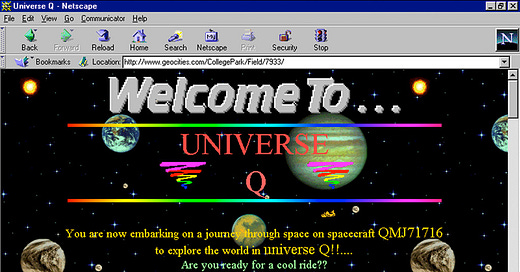





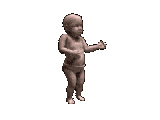
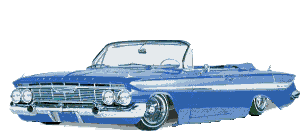


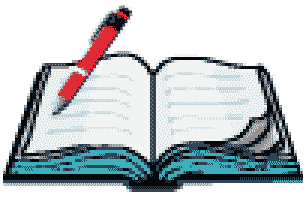


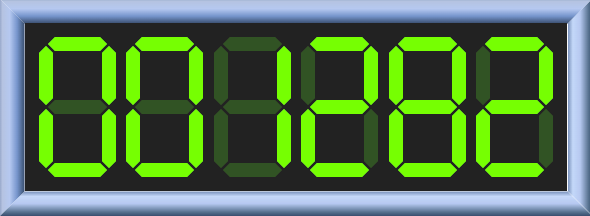
Thanks for the trip back down memory lane. In the time it took me to read this my AOL account may have connected to the Internet.